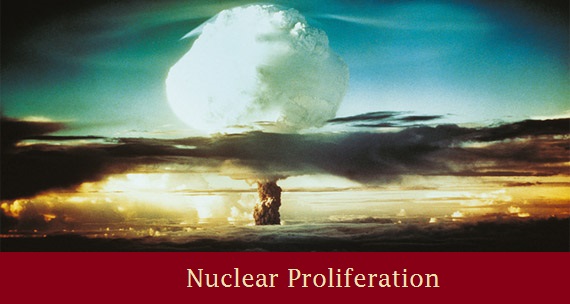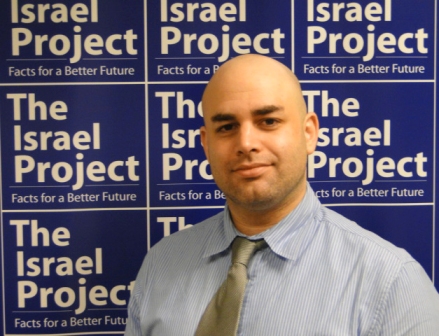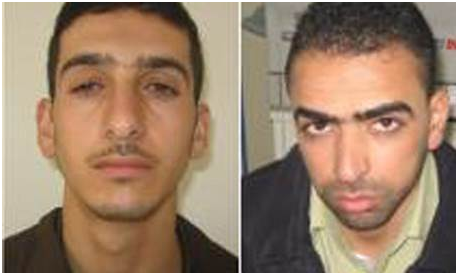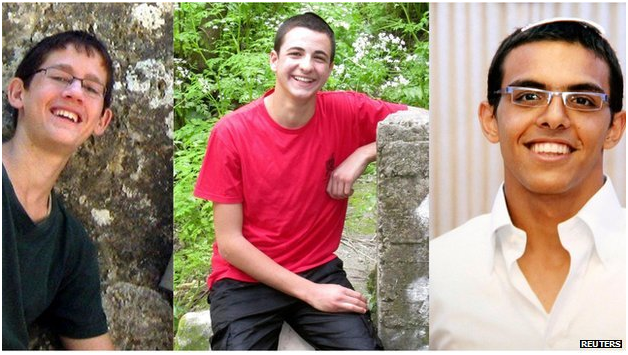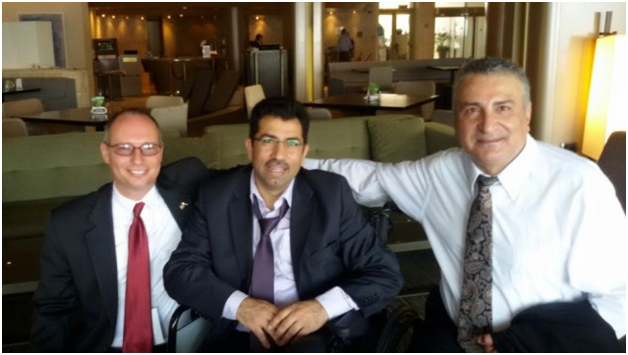Kurds with Russian Support Cross Turkey’s “red lines” in Syria
The Munich Communique reached by 20 countries last week imposed a cessation of hostilities by the opposing forces in the Syrian civil war with its mounting death toll. It has been breached by Erdogan, Russian backed Assad regime forces and their allies, Iran and proxy Hezbollah. The latter have successfully blocked Syrian opposition forces in both Latakia and Aleppo provinces. There are enough holes in the Agreement to permit freedom of action by Russia, Turkey, and Saudi Arabia.
This weekend brought news concerning Turkey’s cross border shelling of Syrian Kurdish YPG/PYD forces with Russian air support violating Erdogan’s “red line” crossing the Euphrates and seizing another strategic air field. This occurred despite Obama’s Special Middle East envoy in the war against the Islamic State (IS), Brett Mc Gurk, meeting with Syrian Kurdish YPG/PYD forces in Syria and Vice President Biden’s meeting with Erdogan and Premier Davutoglu in Ankara last week. Erdogan considers the YPG/PYD forces as an extension of the Kurdish Workers Party (PKK) that Turkey, the EU and US consider as a ‘terrorist group”. This despite his breaking a cease fire agreement with PKK head Abdullah Ocalan under house arrest. Erdogan’s security forces have a real battle on their hands in predominately Kurdish Southeastern Turkey trying to subdue stubborn urban resistance, a change from the 30 year war with Turkey’s Kurds. The advent of a Kurdish party, the Peoples’ Democratic Party, the HDP, in the Ankara parliament, that Erdogan has endeavored to isolate but failed to vanquish. is a reflection of the growing Kurdish minority flexing its political strength.
These developments in both Syria and Turkey underline the Administration’s virtual abdication of the countervailing power vacuum in the Middle East that Putin has seized possibly bolstering the regional Kurdish aspirations for a long sought independent resource rich state. This might be viewed as further pushback against the Islamist AKP regime of Turkey’s Erdogan. All of these developments arose following Turkey’s shoot down of a Russian SU -24 bomber in October 2015 and dramatic break off in relations and joint economic projects between Russia and Turkey. Now, there are rumblings from Russian Prime Minister Medvedev in an interview indicated that the rising conflict with Turkey might possibly lead to “new Cold War era.” Frederica Mogherini, EU Foreign Relations Commissioner downplayed that saying she had seen any evidence of that in the last few days. Meanwhile both Poland and the Baltic States aren’t so sanguine. Turkey is a NATO member which can invoke an Article in the Charter of the mutual defense group requiring all members to come to its aid should there be an alleged attack by Russia.
Note this background in a EUobserver report, “Turkey clashes with allies over attack on Syria Kurds:”
France and the US have urged NATO ally Turkey to stop firing on Kurdish groups in Syria, putting at risk a new “cessation of hostilities” accord.
The French foreign ministry appealed on Sunday (14 February) for an “immediate halt to bombardments, by the [Syrian] regime and its allies in the whole country, and by Turkey in Kurdish zones”.
It added that the “absolute priority is the implementation of the Munich communique” – a deal to pause fighting agreed by almost 20 states at a security congress in Munich last week.
The White House said US vice president Joe Biden had made a similar appeal to Turkish PM Ahmet Davutoglu by phone on Saturday.
“The vice president noted US efforts to discourage Syrian Kurdish forces from exploiting current circumstances to seize additional territory near the Turkish border, and urged Turkey to show reciprocal restraint by ceasing artillery strikes in the area,” it said.
Brett McGurk, a US special envoy on the fight against Islamic State (IS), said on Twitter: “We have … seen reports of artillery fire from the Turkish side of the border and we have urged Turkey to cease such fires.”
Turkey warns Kurds have crossed its red lines in Syria:
The appeals came after Turkish howitzers shelled Kurdish PYD and YPG groups in northern Syria, killing dozens of people, after Kurdish fighters, helped by Russian air strikes, seized territory including the Menagh air base near the Turkish border.
The US and EU powers see the Kurdish militias as allies in the fight against IS. But Turkey says they are a branch of the PKK, a Kurdish group designated by the US and EU as a terrorist entity, which has been fighting a 30-year insurgency against Turkish authorities.
The Turkish leadership has refused to back down.
Davutoglu told German chancellor Angela Merkel over the phone on Sunday that his forces “gave the necessary response and will continue to do so”, according to his office.
He added that the PYD-YPG offensive was aimed “not just at Turkey but also the European Union” and that it would prompt a “new wave of hundreds of thousands of refugees” from Syria.
Turkish foreign minister Mevlut Cavusoglu, speaking in Munich to the Sueddeutsche Zeitung daily, urged the US and EU to back safe zones for refugees inside Syria if they wanted to stem the flow of people.
Turkey’s deputy PM, Yalcin Akdogan, told the Kanal 7 TV broadcaster:.
“The YPG crossing west of the Euphrates is Turkey’s red line.”
The comments follow strident words by Turkish president Recep Tayyip Erdogan last week, who told the US: “Are you together with us, or are you with the PYD and YPG terror groups?
The February NER featured a discussion with Dan Diker and Shoshana Bryen about what motivated Putin’s entry into Syria, “Russian Intervention in Middle East Conflicts .” One is the ability to attack radical Sunni Islamists; the other is achievement of Russian national security and economic interests. Further, as pointed out the alliance with Iran and proxy Hezbollah is tentative at best.
Obama in his final year in office has abdicated the traditional Sunni alliances creating a power vacuum via the rapprochement with Islamist Iran to achieve a fragile equilibrium in the Middle east. Putin allegedly has no intentions of threatening Israeli national security on its northern frontier or engaging in support of Palestinian aspirations.
The Russian aerial assault on Turkmen and rebel Sunni forces supported by Turkey and Saudi Arabia in Syria’s north sealing off Sunni rebel opposition groups and supporting Syrian Kurds is also part of Russian strategic moves in the region. It threatens Erdogan’s and US aspirations of creating a no fly zone to stem the tide of further Sunni Muslim refugee flight to Turkey and hence to Europe. It may also enable the closure of the remaining gap in the northern frontier of Syria between the autonomous Kurdish enclaves of Rojava and Afrin. This would cut off the open border through which foreign Sunni jihadis and smuggled oil and other trade with Turkey from ISIS has poured. Erdogan is also under enormous economic pressure given Russian economic sanctions and the suspension of the gas pipeline deal struck in 2014.
Erdogan has euchred baksheesh in billions of Euros from the EU to stop Muslim migration to no avail. Erdogan blusters about invading Syria to block irredentist Kurdish aspirations in Syria while conducting an inflammatory counterterrorism campaign against stubborn Kurdish resistance in the urban centers of the country’s Kurdish dominant Southeast. Putin is poised to support Kurdish autonomy aspirations on both sides of the Syrian/Turkish border as leverage against Erdogan.
That would enable the Syrian Kurdish forces to vanquish Sunni rebel and ISIS forces in Syria’s north blocking the Islamic state. This offensive operation might set the stage for a massive Russian aerial campaign against the Caliphate. That is something the US led coalition has failed to achieve because of the Administration’s rules of engagement and failure to supply both Iraqi Peshmerga and Syrian Kurdish forces with heavy arms. Thus, Putin is using his playbook from the seizure of Crimea and Eastern Ukraine in the Middle East. Russia is fast becoming the strong horse that Israel, the Gulf Sunni States and the Saudis must come to some form of accommodation. Netanyahu’s trip to Moscow in September 2015 enabled the Jewish nation to exercise its sovereign national security interests attacking Iranian supply of strategic arms to proxy Hezbollah. Netanyahu’s security concerns on his northern frontiers are complicated with Russian support of Assad operations aimed at retaking Daraa in the country’s south not far from the Golan frontier with Israel. That might raise the possibility of Iranian Basij paramilitaries and Quds Force based along the Syrian side of the Golan threatening cross border terrorist actions. That would add to the mix of threats there including al Nusra and ISIS units.
This is the 21st Century version of the classic great game that Czarist Russia played in the 19th Century against imperial Britain in Russia’s march to the Far east and Pacific that failed to achieve warm water ports in the Mediterranean and South Asia. See: Peter Hopkirk’s, The Great Game: The Struggle for Empire in Central Asia.
The difference in the 21st Century is that Putin has his warm water bastions in the naval and air bases he has built on the Mediterranean coast of the Alawite Latakia province in Syria.
As to the blustering statements made by Republican Presidential hopeful Donald Trump during primary debates suggesting a strategic alliance between Russia and the US in the Middle East, that awaits the outcomes of the fractious nomination process for both the Republican and Democratic parties in the run up to the 2016 elections in the US. Suffice to say 2016 exemplifies the ancient Chinese curse. May you live in interesting times.

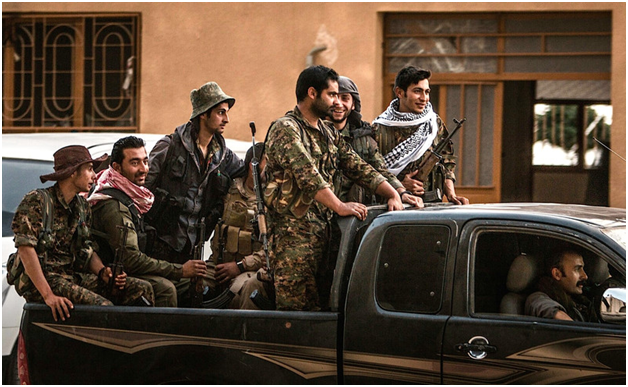
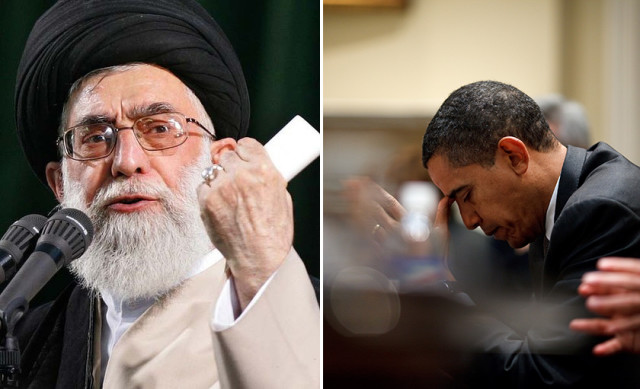
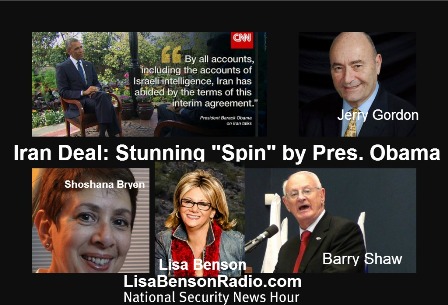 The following were important takeaways from the August 9th Lisa Benson Radio Show:
The following were important takeaways from the August 9th Lisa Benson Radio Show: